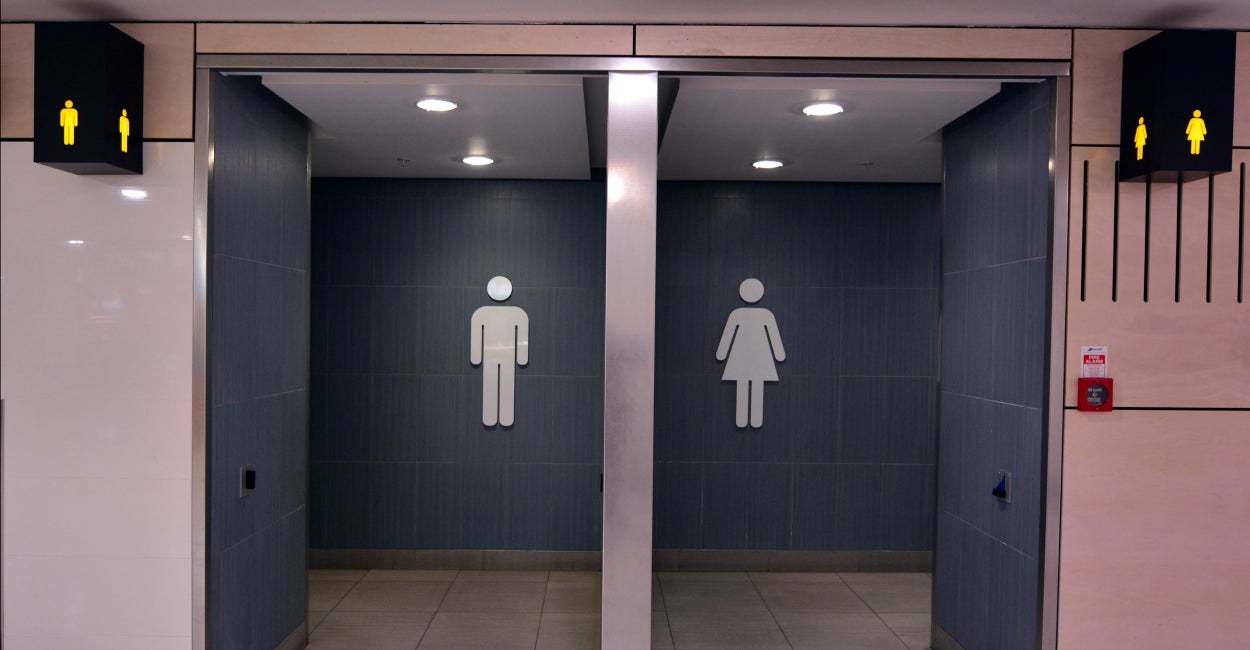Politico is reporting that the so-called “Equality Act” will be introduced today in Congress. The bill is the brainchild of the Human Rights Campaign—an influential, sophisticated and lavishly funded LGBT activist organization.
The “Equality Act” is a misnomer. The bill does not protect equality before the law, but unnecessarily and unjustly violates freedom by creating special privileges based on sexual orientation and gender identity.
This proposed legislation would add “sexual orientation and gender identity” (SOGI) to more or less every federal law that protects on the basis of race. It goes well beyond the Employment Non-Discrimination Act (ENDA)—which would have added SOGI only to employment law.
ENDA, which was first introduced in Congress in 1994, has been defeated each and every Congress. When it was first introduced, ENDA included only “sexual orientation,” but in 2007 “gender identity” was added to the bill. Thankfully, ENDA has never been made law.
Nevertheless, having expanded the bill from including sexual orientation to also including gender identity, activists have also extended this misguided policy well beyond employment—to “credit, education, employment, federal funding, housing, jury service and public accommodations.” These SOGI laws must be resisted, as I explain in chapter six of my new book, “Truth Overruled: The Future of Marriage and Religious Freedom.”
The Advocate reports that the “Equality Act’s” special privileges would apply to “public accommodations, public education, employment, housing, federal funding, jury service, legal protections, and credit. The bill would also clarify that the Religious Freedom Restoration Act cannot be used to defend” people who believe that marriage is the union of man and woman. That’s right: the bill says that religious freedom needs to take a back seat to special SOGI protections.
The Advocate also reports that the “Equality Act” would require that “sex-segregated facilities must admit individuals in accordance to their gender identity.” That’s right: the bill would require biological males who identify as women to be able to use women’s bathrooms and locker rooms.
The “Equality Act” is bad public policy.
Sexual Orientation and Gender Identity Laws Create Unnecessary Problems
As I explain in “Truth Overruled,” SOGI laws can have serious unintended consequences. They threaten small-business owners with liability for alleged “discrimination” based not on objective traits, but on subjective and unverifiable identities. They expand state interference in labor markets, potentially discouraging job creation. They endanger religious liberty and freedom of speech. And they mandate employment policies that, with regard to many workplace conditions, violate common sense.
SOGI laws like the “Equality Act” tend to be vague and overly broad without clear definitions of what conduct can and cannot be penalized. They expose innocent citizens to ruinous liability, and they foster economically harmful government interference in mark
In short, SOGI laws regulate commercial decisions that are best handled by private actors, and they regulate educational decisions best handled by parents and teachers, not bureaucrats.
Establishing special privileges based on gender identity is an especially bad idea. Prohibiting schools, businesses and charities from making decisions about transgender students, faculty and employees—especially regarding those in positions of role models—could be confusing to children and detrimental to workplace morale.
>>> Download the ebook version of “Truth Overruled: The Future of Marriage and Religious Freedom” today! (Paperback will be available end of August, but can be preordered.)
First, while issues of sex and gender identity are psychologically, morally and politically controversial, all should agree that children should be protected from having to sort through such questions before they reach an appropriate age. SOGI laws would prevent schools and employers from protecting children from these adult debates about sex and gender identity by forcing employers to accommodate the desires of transgender employees in ways that put them in the spotlight.
Second, while some SOGI laws provide limited (and inadequate) exemptions for religious education, they provide no protection for students in nonreligious schools. These children would be prematurely exposed to questions about sex and gender if, for example, a male teacher returned to school identifying as a woman.
Difficulties can also arise when a student identifies as transgender and seeks to use the restrooms and locker rooms that correspond to his or her new gender identity. These situations are best handled at the local level, by the parents and teachers closest to the children.
Finally, whatever the significance of gender identity, society cannot deny the relevance, in many contexts, of biological sex. For example, an employer would be negligent to ignore the concerns of female employees about having to share a bathroom with a biological male who identifies as female. The same is true for students. The implications for the privacy rights of adults and children are extremely serious, and state laws are already stirring up such concerns.
The Starting Point Is Freedom
The foundational principle of American life is liberty under law, as I explain in “Truth Overruled.” In general, consenting adults are free to enter or refuse to enter relationships of every sort—personal, civic, commercial, romantic—without government interference. Freedom of association and contract is presumed. If the government is going to interfere, it must explain why. It has the burden of proof.
These rights of association and contract mean that businesses and charities and civic associations should be generally free to operate by their own values. They should be free to choose their employees and their customers, to choose the terms of employment and the standards of conduct for members of a club. They should be free to advance their own values and to live them out as they see fit.
The recognition of these civil liberties leaves everyone equal before the law. But the “Equality Act” undermines these same fundamental civil liberties, especially freedom of speech and the free exercise of religion.
SOGI laws like the “Equality Act” tend to be vague and overly broad without clear definitions of what conduct can and cannot be penalized. They expose innocent citizens to ruinous liability, and they foster economically harmful government interference in markets.
But the damage of SOGI laws is not only economic. They threaten the freedom of citizens, individually and in associations, to affirm their religious or moral convictions—convictions such as that marriage is the union of one man and one woman. Under SOGI laws, acting on these beliefs in a commercial context could be actionable discrimination. These are the laws that have been used to penalize bakers, florists, photographers and adoption agencies.
But freedom should be our default. Consider how the A&E television network suspended Phil Robertson and Cracker Barrel removed his products from its stores. The law left them free to do so.
They ended up reversing those decisions because their customers didn’t like them. Mozilla was free to force Brendan Eich to resign, and its constituency—techies—seemed content.
The baker, the florist and the photographer should be equally free to run their businesses according to their own values. Disagreement with someone’s actions is not enough to justify the government’s coercing him into conformity with prevailing opinion. Free association and exchange are usually sufficient to sort these things out.
The power of public opinion expressed in the marketplace makes unjust discrimination intolerably costly—no need for the government to weigh in.
Indeed, many companies have their own policies prohibiting consideration of sexual orientation and gender identity in employment. The Human Rights Campaign reports that 88 percent of Fortune 500 companies voluntarily do not consider sexual orientation in employment decisions. “Median LGBT household income,” moreover, “is $61,500 vs. $50,000 for the average American household,” according to Prudential.
It’s hard to see what the justification could be for a federal law that would interfere in employment decisions to create special privileges based on sexual orientation and gender identity when the market is already sorting these things out.
Sexual Orientation and Gender Identity Are Not Like Race
Advocates of SOGI laws, however, say they’re just like racial anti-discrimination laws. They argue that opposition to same-sex marriage is just like opposition to interracial marriage—and that the government should treat it in the same way.
Their refrain for the past decade has been that laws designating marriage as the union of male and female are no more defensible than bans on interracial marriage. These arguments are wrong on several counts, as I explain in great detail in “Truth Overruled.”
However the law defines marriage, the state has no compelling interest in forcing every citizen to treat a same-sex relationship as a marriage in violation of his religious or moral convictions. Even people who personally support same-sex marriage can see that the government is not justified in coercing people who do not.
After all, it is reasonable for citizens to believe that marriage is the union of man and woman. When citizens lead their lives and run their businesses in accord with this belief, they deny no one equality before the law. They deserve protection against government coercion.
The power of public opinion expressed in the marketplace makes unjust discrimination intolerably costly—no need for the government to weigh in.
The assumption that marriage is the union of a man and a woman was nearly universal among human societies until the year 2000. Same-sex marriage is the work of revisionism in historical reasoning about marriage.
Racial segregation laws, including bans on interracial marriage, were, by contrast, aspects of an insidious ideology that arose in the modern period in connection with race-based slavery and denied the fundamental equality and dignity of all human beings. The race of the spouses has nothing to do with the nature of marriage, and it is unreasonable, therefore, to make it a condition of marriage.
Before the Civil War, a dehumanizing regime of race-based chattel slavery existed in many states. After abolition, Jim Crow laws enforced race-based segregation. Those wicked laws enforced the separation of persons of different races, preventing them from associating or contracting with one another.
Even after the Supreme Court struck down Jim Crow laws, integration did not come easily or willingly in many instances. Public policy therefore sought to eliminate racial discrimination, even when committed by private actors on private property.
Racial segregation was rampant and entrenched when Congress intervened to stop it. Today, however, market forces are sufficient to ensure that people identifying as gay or lesbian receive the wedding- related services they seek.
In every publicized case of a business owner’s declining to facilitate a same-sex ceremony, the service sought by the couple was readily available from other businesses. In other words, a pluralistic civil society is policing itself; no law is needed here.
Furthermore, the right of religious liberty has been invoked not with respect to sexual orientation in general, but with respect to marriage. Citizens have resisted being coerced into celebrating or providing services for same-sex weddings and treating same-sex relationships as marriages in violation of their beliefs.
Running a business in accordance with the view that marriage is a union of husband and wife is reasonable and should be lawful. Running it based on racist views is unreasonable and thus unlawful.
Americans should respect the equal dignity of their neighbors, but SOGI laws are not narrowly drawn to protect true equality before the law. As I argue in “Truth Overruled,” the far-reaching effects of SOGI laws unite civil libertarians concerned about free speech and religious liberty, free marketers concerned about freedom of contract and social conservatives concerned about marriage and culture.
SOGI laws imperil religious liberty, privacy, economic freedom and child welfare, creating more problems than they aim to resolve. They are a solution in search of a problem.




























